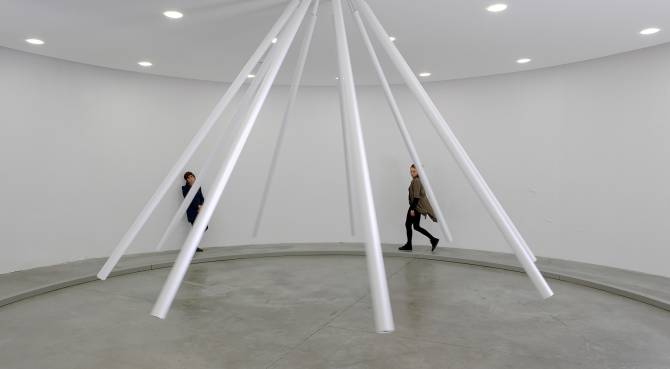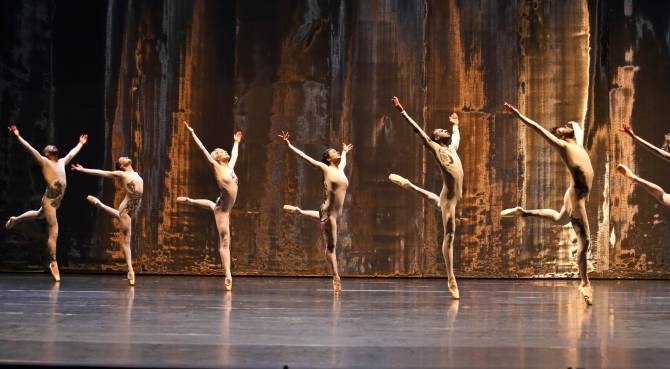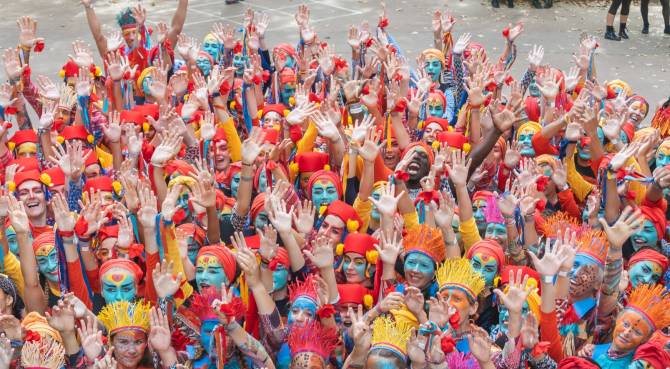
Organisation
La Biennale de Lyon is a cultural enterprise that alternately devises, produces and holds two major international events: the Dance Biennale and the Contemporary Art Biennale. In doing so it supports, promotes, develops and spreads their values.
Led by a management team of a chief executive and two artistics directors La Biennale de Lyon is a non-profit body built around two main synergies:
- between two major festivals, staged by the same team. This management of two alternate events generates some highly positive effects: audience cross-pollination and growth, cross-disciplinary dialogue, motivated and high-quality staff, development of specific event-production know-how, and enhanced efficiency vis-à-vis media partners, contractors and philanthropists (two complementary events, continuous activity);
- and a highly beneficial synergy between events and institutions (Maison de la Danse for the Dance Biennale, and Museum of Contemporary Art (macLYON) for the Art Biennale), via La Biennale de Lyon's artistics directors, who also head the corresponding institutions. This makes it possible to: have top-flight figures who are actually based in Lyon; sustain an ongoing event/history dialogue; develop and enrich each event’s audience; generate a virtuous two-way flow rather than a sterile rivalry that stunts the development of both the institution and the event; and facilitate inter-team collaboration.
Missions
La Biennale de Lyon is a non-profit body. Its main missions are:
- supporting the creation and dissemination of new work: every year, La Biennale de Lyon dedicates a substantial share of its budget to producing new pieces of choreographic and visual art. It also strives to disseminate them, especially in the field of dance.
- educating the audience in the arts: the Biennale caters for the widest possible audience, from newcomers to the most knowledgeable enthusiasts.
- promoting France, and especially Lyon and its region, on the international scene: the Biennale attracts many foreign professionals and generates heavy media coverage. The event also helps enhance the economic attractiveness of its host region.
- fostering vibrant local communities: by mobilising numerous towns in Greater Lyon and the Auvergne Rhône-Alpes region through creative, participatory and complementary events, the Biennale helps strengthen the social fabric and instil a sense of togetherness.
Lastly and most essentially, La Biennale de Lyon, like other cultural players, works primarily to develop and promote another form of intelligence with regard to the world, by considering reality through the senses.


